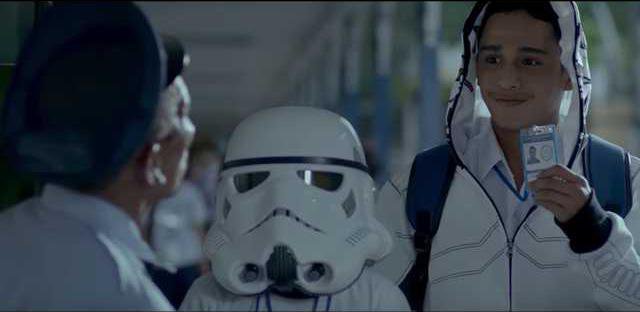Have you ever felt so self-conscious that you just want to hide your face in a helmet?
In a new PSA from Globe Studios, that is just what a little girl does.
In the video, the girl and her brother go to school, walk across town and complete their chores while dressed in Stormtrooper helmet and hoodie.
At the end of the video, the two siblings watch the new Star Wars film, "Rogue One." The next day the girl goes to school and all the kids are wearing Stormtrooper helmets.
By the end of the video, the little girl summons the courage to take off her helmet revealing an Oxygen mask.
The video is tagged #CreateCourage.
The video has been viewed over 1.5 million times on Globes Facebook page and another 8.1 million times on the "Elite Geek," Facebook page.
Watch the video on YouTube here.
In a new PSA from Globe Studios, that is just what a little girl does.
In the video, the girl and her brother go to school, walk across town and complete their chores while dressed in Stormtrooper helmet and hoodie.
At the end of the video, the two siblings watch the new Star Wars film, "Rogue One." The next day the girl goes to school and all the kids are wearing Stormtrooper helmets.
By the end of the video, the little girl summons the courage to take off her helmet revealing an Oxygen mask.
The video is tagged #CreateCourage.
The video has been viewed over 1.5 million times on Globes Facebook page and another 8.1 million times on the "Elite Geek," Facebook page.
Watch the video on YouTube here.








